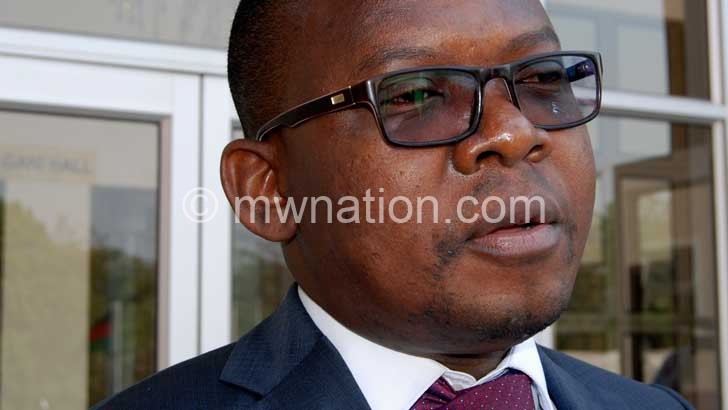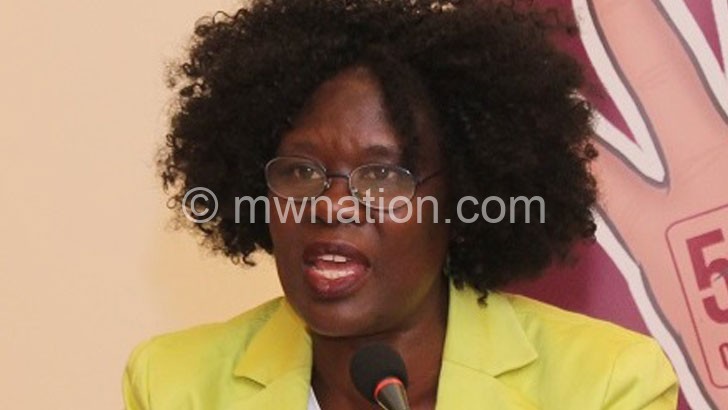MPs face 50%+1
- MEC defers Mangochi, Phalombe by-elections
- Process to proceed in Karonga, Lilongwe
Three years after Parliament rejected Electoral Reforms Bills that included adoption of 50-percent-plus-one vote in determining winners, the law has come back to haunt legislators as Malawi Electoral Commission (MEC) has resolved to apply it in by-elections.

Initial proposals restricted the 50-percent-plus-one vote system to presidential election while leaving parliamentary and local government elections to use first-past-the-post or simple majority.
But the historic presidential election nullification judgement interpreted “majority” as 50-percent-plus-one vote and the system was used in determining the court-ordered June 23 Fresh Presidential Election.
However, in a statement announcing the deferring of by-elections in three of the five constituencies, MEC chairperson Chifundo Kachale said parliamentary and local government by-elections will be determined by the 50-percent-plus-one vote system.
He said the decision was informed by the judgement of the High Court of Malawi sitting as the Constitutional Court and upheld by the Malawi Supreme Court of Appeal, that the definition of “majority” in determining a winner in the election is 50-percent-plus-one.

The November 10 2020 by-elections have been deferred in Mangochi West, Mangochi North East and Phalombe North constituencies whose vacancies followed court nullification of the May 21 2019 parliamentary elections.
But Kachale, a judge of the High Court of Malawi, said the by-elections will proceed as planned in Lilongwe North West and Karonga Central constituencies as well as Makhuwira South Ward in Chikwawa. Lilongwe North West fell vacant after its legislator Lazarus Chakwera resigned to vie for the presidency while Karonga Central’s vacancy followed the death of Cornelius Mwalwanda.
He said that following the judgement of the High Court in Martin Chikati Sekati Nyengo and Simeon Harrison vs Electoral Commission, Election Case Number 1 of 2020, the procedure for holding elections in the three constituencies will entail having only those candidates who participated in the 2019 parliamentary elections as eligible to contest with their status and party affiliations maintained.
Kachale added: “The voters’ register will be reset to the state it was on 21st May 2019. In view of the foregoing, the elections in Mangochi West Constituency, Mangochi North East Constituency and Phalombe North Constituency have been deferred to allow time for implementation of the above processes. New dates for receipt of nominations and the three by-elections will be set and announced in due course.”

The electoral body also said it considered the provisions of Section 96 (5) of the Parliamentary and Presidential Elections Act and Section 80 (5) of the Local Government Elections Act and the interpretation of the word “majority” by both the Constitutional Court in Dr. Saulos Klaus Chilima and Dr. Lazarus McCarthy Chakwera vs. Prof. Arthur Peter Mutharika and the Electoral Commission, Constitutional Reference No. 1 of 2019 and Malawi Supreme Court of Appeal in Prof. Arthur Peter Mutharika and the Electoral Commission vs. Dr. Saulos Klaus Chilima and Dr. Lazarus McCarthy Chakwera, MSCA Constitutional Appeal Number 1 of 2020; hence, “the threshold for determination of a winner for both the parliamentary and local government elections will be set at 50-percent-plus-one vote of the votes cast”.
Reacting to the development in an interview last evening, Malawi Electoral Support Network publicity secretary McBain Mkandawire said the 50-percent-plus-one vote system will not please members of Parliament (MPs) because they rejected the proposal when Electoral Reforms Bills were tabled in Parliament.
He said: “I think this will help to strengthen intraparty democracy. How do we expect to have 15 candidates for one constituency? For what? You will find that most of the candidates are breakaways from the main political parties, which means there is a lot of intraparty politics which needs to be addressed.”
On his part, Malawi Law Society president Burton Mhango said MEC was within the law in deciding to determine winners of parliamentary elections using 50-percent-plus-one vote system based on the court order.
He said: “When we were observing the presidential election, the court made it clear that whatever it takes, the election must be done according to the law. Whether it is too expensive, takes more or short time, it must be done according to the law.”
In a separate interview, Non-governmental Organisation Gender Coordination Network (NGO-GCN) executive director Barbara Banda also welcomed the 50-percent-plus-one vote system to determine winners of parliamentary and local government elections.
She said the new system will be more relevant and will strengthen democracy because the winners will be truly representing the majority.
But Banda observed that the system will negatively impact on women aspiring for the positions because many of them struggle with resources for campaign; hence, it will be hard for them to sell themselves to get over 50 percent votes.
Political analyst Mustafa Hussein, who teaches at Chancellor College—a constituent college of the University of Malawi, said while it was understandable for MEC to adopt the 50-percent-plus-one system, the electoral body should have communicated the new arrangement earlier.
Between December 2019 and July this year, the High Court nullified parliamentary elections for the three constituencies and ordered fresh parliamentary elections.





